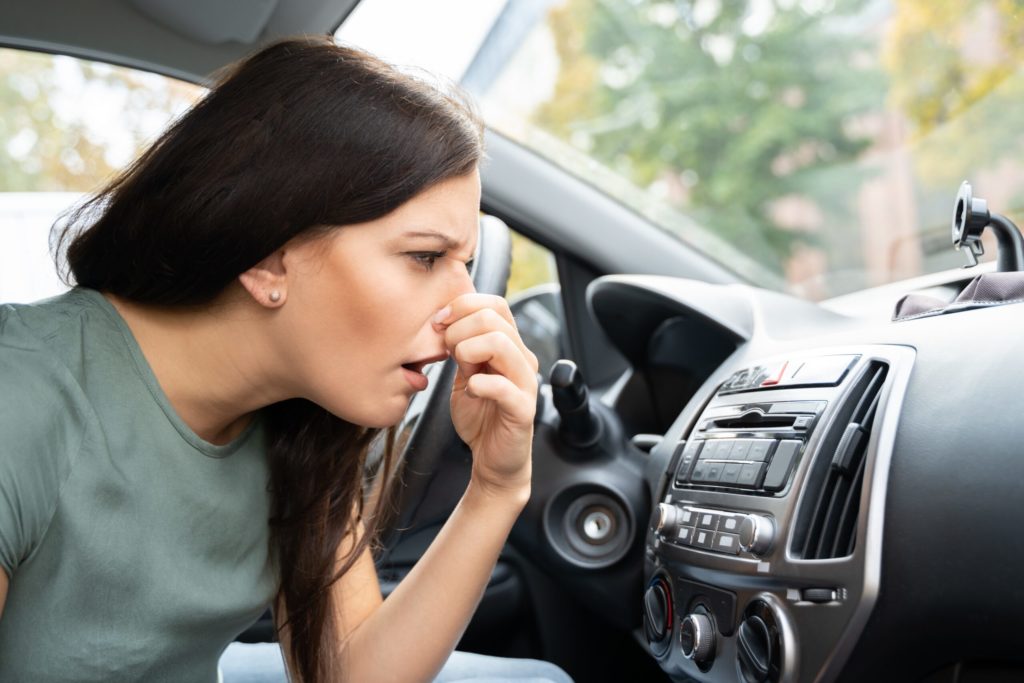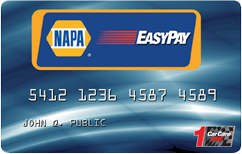
There is never a convenient time for your car to develop a new problem. Catching a strange whiff or hearing an unusual noise while driving can make us feel uneasy in the pits of our stomachs as automotive problems that require repairs come with unexpected expenses and other inconveniences. Fortunately, many car troubles signal their presence with early warning signs, allowing you to detect issues before they become more severe.
Today’s cars and trucks are equipped with vast arrays of sensors that can detect the majority of even the smallest faults and irregularities with your car. If a problem is recognized by a sensor, a dashboard indicator light will illuminate or a warning message will be displayed, letting the driver know that service is required. These warning systems are not flawless, however, and some problems may present themselves in other detectable ways first. Identifying unusual sounds and smells is a common way to diagnose vehicle issues.
Paying regular attention to your vehicle before, during and after driving will help you detect when something is wrong, as early as possible. As the driver, you are the first line of defense when you hear a strange noise, smell an odd odor, feel your vehicle behaving irregularly or spot a pool of liquid forming under your parked car. Noticing these symptoms is half the battle and from there you can begin to identify the more specific underlying issues. To help you hone your senses and stay on top of your vehicle’s health, we have put together a handy guide below for using your nose and ears to recognize trouble early and prevent issues from developing into problems that will require more expensive car repairs later on.
KEEPING YOUR EARS OPEN FOR CAR TROUBLE
High-Pitched Screech When Braking
Sometimes your brakes will let out a light squeak when they’re wet or dirty and that’s normal. If they make a sustained, sharp, high-pitched, piercing sound while braking, however, that’s a sign of your brake pads being worn. Your brake pads wear down over time with use, which is difficult to see and notice without manually checking the pad thicknesses. To avoid wearing out the pads completely, which could cause damage to the brake rotors they contact, modern brake pads come with wear indicators that make a high-pitched noise to get your attention when the pads are getting too thin. If you hear this sound, it’s time to schedule a brake inspection and to be prepared that you will likely need to change your brake pads.
Grinding While Braking
If you hear harsher metal-on-metal grinding sounds and possibly also feel vibrations in the pedal while braking, your brake pads are probably completely worn and you are now hearing the sound of your brake calipers grinding against the rotors. This is a sign have your car inspected and serviced IMMEDIATELY. Aside from your brakes not being able to safely function for normal driving, you are doing further serious damage to your vehicle’s braking system which will cost you much more to repair.
Tapping, Pinging or Clicking When Accelerating
If while you are driving and hitting the gas you hear a tapping, ticking or pinging sound coming from the engine, something is amiss. This type of noise will be present whenever you press the gas pedal, no matter if you are at a full stop, accelerating or cruising on the highway. The cause of this sound could be as simple as having filled up with cheap of gas with lower than the recommended octane rating for your engine, resulting in ‘detonation’ inside the engine. If this seems likely, you can attempt to resolve the issue by adding Octane Booster to the gas in your tank and then being sure to use the proper octane of fuel that is required for your vehicle for your next fill up. If the sound goes away with new gas, be sure to only fill up with only the recommended octane gasoline or higher moving forward.
If the sound does not go away with fresh fuel, then you should bring your car to a mechanic for inspection right away. There could be a problem with the engine’s ignition timing, the valves may need work, or several other potential culprits that will require closer inspection for diagnosis and are unlikely to resolve themselves on their own.
If the ticking sound is more of a click than a ping, you might also possibly be low on engine oil or have a bent fan blade. Check your engine oil levels with your dipstick right away, add additional oil as needed and investigate the engine bay and fans for any obvious damage. From there, bring your car to a mechanic for diagnosis.
Clunking & Thunking Over Bumps
If you hear heavy clunks when you go over rough road surfaces and bumps, this is most likely a sign that your suspension needs some attention. You might hear this sound if you have a loose shock absorber or if a bushing has worn out. Another possible cause of this sound could be your exhaust pipe if its mounts have worn loose and it is now sometimes hitting against the bottom of the car. Either of these issues is easily diagnosed by an automotive technician who can then recommend a fix.
Squealing When You Turn The Steering Wheel
Hearing a squeal when you turn the steering wheel, especially right after starting the car, is often a sign of an issue with the power steering system. The first thing to do is check if your power steering fluid level in the reservoir in the engine bay is low, or if a warning message is being displayed on the dashboard. Depending on the car, you may be easily able to temporarily top off the fluid to help you reach your destination, however low power steering levels indicate a problem elsewhere in the brake or clutch system that should be investigated further. The squealing sound could also be from a loose belt driving the power steering pump or even the pump itself going bad. A professional mechanic will be able to help you narrow down the problem and find a solution.
Squealing That Varies With Engine Revs
A sharp, shrill squeal, which increases in intensity as the engine revs, is usually caused by a loose or worn serpentine belt, air conditioning belt, fan belt or power steering belt. Take your car for inspection or if you are handy, you can identify and replace the belt(s) yourself.
This squealing sound could also be caused from a pulley whose bearings have been worn out from a belt that was too tight.
Squeaks and Chirps That Vary With Road Speed
If you are hearing high-pitched repetitive chirps or squeaks while driving that vary with the road speed, you may have a wheel bearing going bad. It would be very dangerous if a wheel bearing were to seize while driving. If you notice this sound, you should have your car inspected right away.
Clicking That Varies With Road Speed
If you hear a loud, repetitive clicking that increases in frequency proportional to vehicle speed, you could be looking at worn CV axles, which transmit power from the transmission to the respective wheels that drive the car. This sound may potentially be accompanied by steering wheel vibrations. The worn axles will need to be replaced or rebuilt and are unsafe for driving.
Low-Pitched, Rhythmic Rumbling Sound
Does your car make a low-pitched, rhythmic rumbling sound? The exhaust pipe, catalytic converter or muffler could potentially be damaged, or the universal joint or another drivetrain component could be worn.
Heavy, Rhythmic Pounding While Driving
Do you hear a heavy, rhythmic pounding when you drive around? Your car could have a worn crankshaft or connecting rod bearings. A loose transmission torque converter can also cause this noise.
Hissing Sound
A hissing sound coming from your engine could mean you have a leak somewhere in your car’s cooling system. As your vehicle’s cooling system is under constant heat and pressure, sometimes big leaks start as pinholes, shooting out a small spray of steam and fluid. A hissing could alternatively be an issue with your air conditioning system, although those issues tend to be slower, quieter leaks.
SNIFFING OUT AUTOMOTIVE PROBLEMS
Must or Mold
If your car smells musty or moldy, then you may have a problem with a water leak. It could be as simple as having accidentally left a window open in the rain or it could be something more serious. Start your inspection by feeling the floor mats with your hands to check for damp areas. If you find one, but did not leave your windows open, make an appointment to have it checked out by a mechanic who can figure out where the water is coming from and fix the problem. Similarly, if your car’s interior smells like a pile of dirty clothes, this is a potential indication of mold or mildew in the heater vents. This often can be resolved by blasting your heaters at the hottest temperature with the windows up for several minutes.
Burnt Toast
A car which has an aroma like burnt toast could be a sign of burning insulation or plastic. This often happens if there’s an electrical short in your car. Limit driving to only essential trips until you can have the car checked out by an experienced technician. Do not delay inspection and repairs as an electrical short can causes more significant damage to your car if left unchecked.
Rotten Eggs
This noxious sulfuric odor is a symptom you might experience if you have a problem with your catalytic converter or other parts of your emissions system. Aside from having to live with a terrible smell, there’s a good chance your car won’t pass inspections in this condition. Schedule an appointment to have your exhaust system repaired.
Steamy & Sweet
A steamy, somewhat sweet odor could signify a coolant leak. If you are catching whiffs of this odor, be sure to closely watch your temperature gauge and engine warning lights as you drive carefully to a service station. Water may be leaking from a hose, reservoir or the radiator itself. If you have a container of properly mixed coolant in the car with you, pour some through the top of the radiator to help you reach a mechanic before the engine overheats. If your temperature gauge is creeping towards the red and your engine is beginning to overheat, pull over immediately and call for a tow. Overheating can cause catastrophic engine damage.
Gasoline Smells
If your car won’t start and you smell gasoline vapors, particularly on older vehicles, your engine may be flooded. Wait a few minutes and try starting the car again. If the smell lingers, there may be a leak in a fuel line, the fuel pump or fuel injectors. These are potentially dangerous problems that require immediate attention. Have your vehicle towed to a repair shop.
Thick Acid Odor / Burnt Cooking Oil
A thick acrid odor in your car usually means oil is burning. While sometimes this can be the result of a small oil leak onto a hot engine part, oil burning internally in the engine could potentially lead to your engine catching fire. This smell may be accompanied by blue exhaust smoke if you have an oil leak. Check the oil level in your car using the dipstick and look under the vehicle for leaks and fluids pooling. Your oil level may be dangerously low, so top up your oil quickly and take your car to a mechanic as soon as possible.
Burning Resin / Campfire Smell
The smell of burning resin or a campfire-like odor could mean your clutch or brakes are overheating. This is most common when you accidentally leave the hand brake engaged while driving, are braking hard going down steep mountain roads, or have been abusing the clutch in hard driving conditions. When you notice this smell, make sure the parking brake is not engaged and immediately stop to allow the brakes and/or clutch to cool down. In the future, you can try to put your car’s transmission into a lower gear when traveling down steep grades or be less aggressive with your clutch pedal inputs to help prevent this. If you see light smoke coming from a wheel, a brake caliper may be stuck. If your clutch pedal sinks to the floor, your clutch pads might be toast or need adjustment. At this point, it is best to have your car towed rather than risk unsafe vehicle operation.
Use Your Senses To Keep You Safe & Your Repair Costs Down
When you are driving, you want to use all your senses at all times. You want to listen for the sounds of horns and emergency vehicles. You want to feel if your car is steering properly. You want to watch out for the other drivers. Your senses can also tell you if your vehicle is developing an issue, but this information is only valuable if you take action.
With this in mind, you don’t have to wait until your car is billowing smoking or hemorrhaging fluids onto the pavement. At the first signs of trouble, bring your car into Griffin’s Auto Repair for emergency repair or routine service whenever you need it. You can contact us online or call us at (619) 234-7991 to schedule an appointment.






